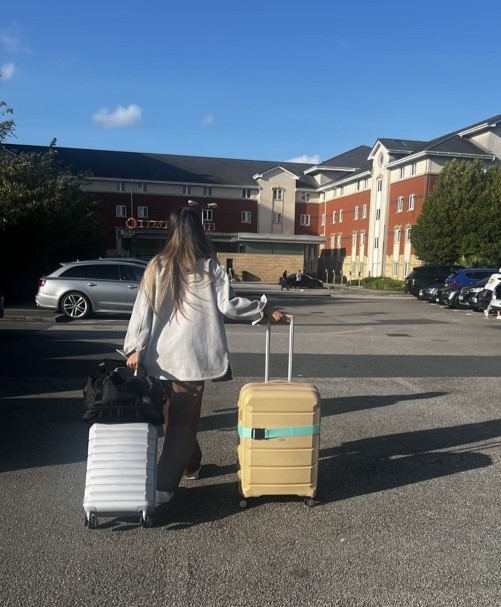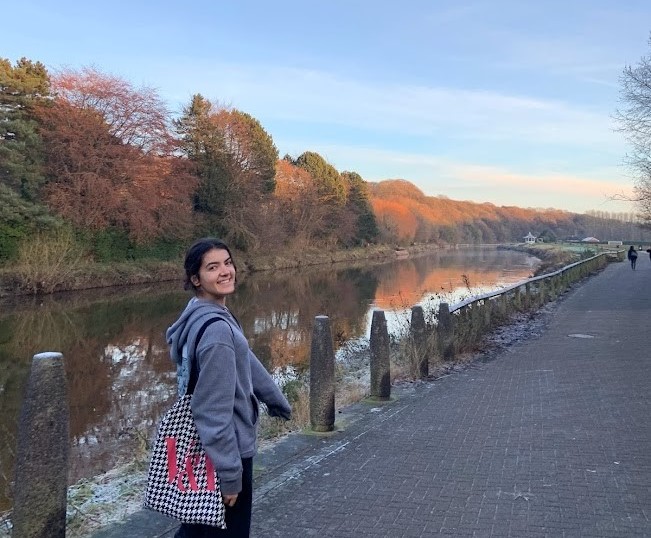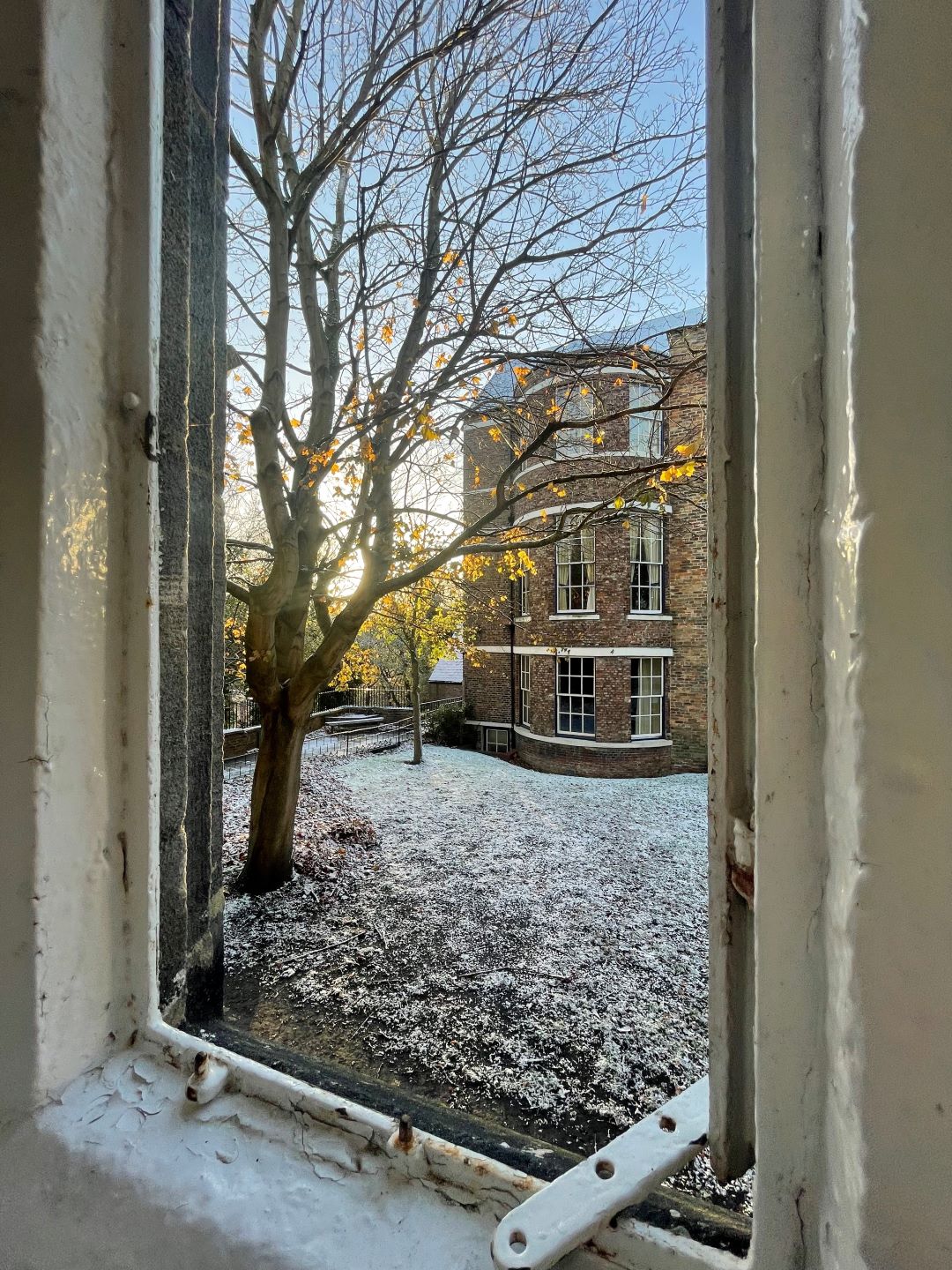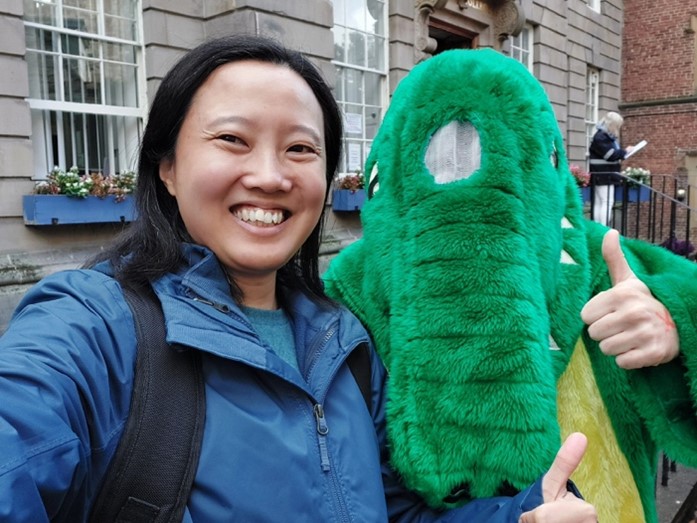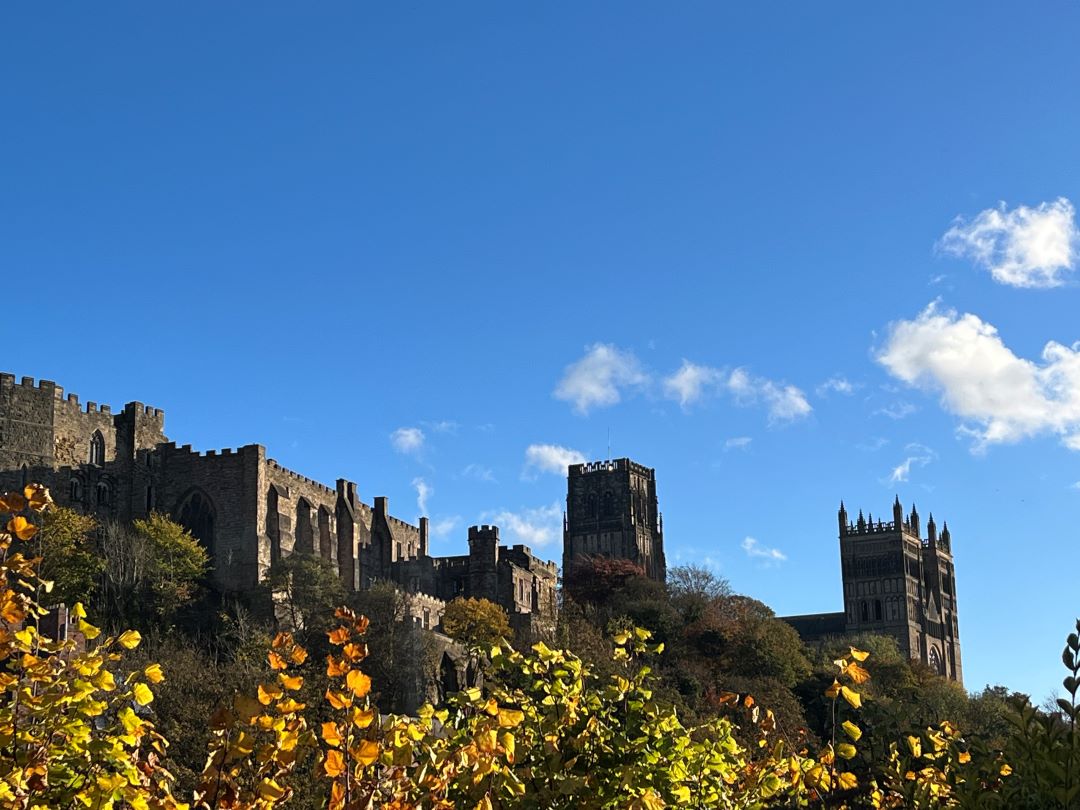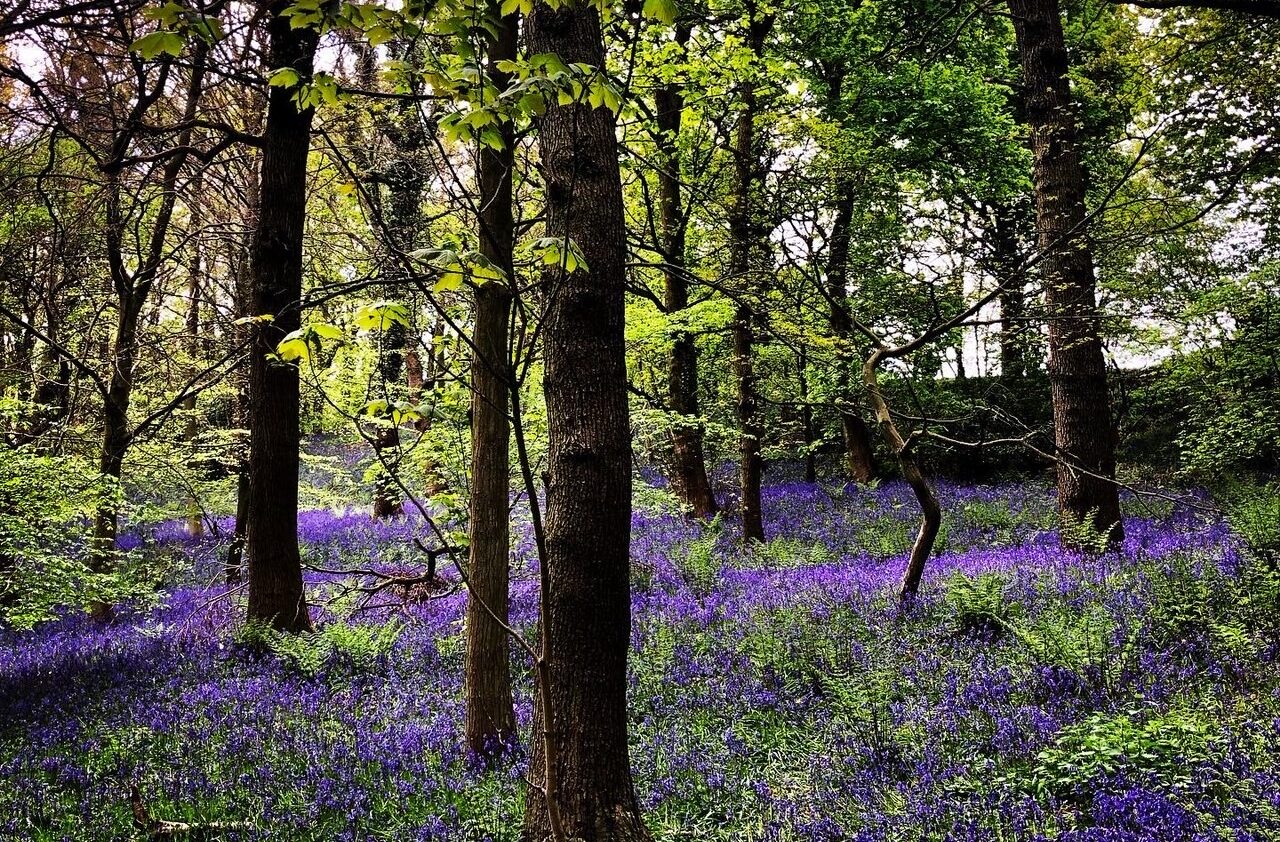One of the unique aspects of studying anthropology at Durham University is the field course. After lots of reshuffling due to Covid, we finally made it to Gibraltar to study its primates (human and otherwise) for a week.
Gibraltar
A British overseas territory at the southern tip of the Iberian Peninsula, Gibraltar is home to the only free-ranging (non-human) primates in Europe and thus offers both social and primatological research opportunities. The “Gibraltar Apes” are Barbary macaques, actually a species of monkey, that live on the Upper Rock Nature Reserve. The nature reserve is home to around 200 monkeys and various military and historical attractions.


Our Stay
During our time in Gibraltar, we stayed in a field station mid-way up the rock, with stunning views of Spain, the port, the Strait of Gibraltar and, on sunny days, Morocco. We experienced a Saharan sand cloud, which turned the sky orange for an evening. While about half of our meals were self-catered, town is only about a 20-minute walk down the rock, allowing us the occasional paella and sangria. Most of our days were filled with research, either up on the rock or down in town, as well as various conversations with Gibraltarians, many of which were facilitated by the Helping Hand trust.


Primate Research
Our pilot data collection over the first couple days shaped the research questions we settled on. Many hours were spent at the four tourist sites, collecting scan and all occurrence data on the primates’ behaviour and their interactions with humans. At first, some of us apprehensive about the monkeys, but after spending enough time observing them, we grew rather fond of them. Although feeding the macaques is illegal, it was interesting to observe the tactics people use to sneak them food in hopes of an Instagram-worthy photo. Many of us found the juveniles macaques especially cute, and it was particularly amusing to see a group of macaques pull the antenna off a rental car that was parked a bit too close for comfort.


Human Research
Some of us decided to focus our research on the interesting people of Gibraltar, their culture, and their identity. We visited the main square, where we observed a ceremonial changing of the keys, the national museum, and many military sites. The WWII and Great Siege Tunnels are very impressive –– this human-made 55km tunnel system garrisoned over 16,000 troops during the Second World War. Independent data collection over three days inspired students to explore folklore, Gibraltarian identity, and what the monkeys mean to the people living in and visiting Gibraltar.


Highlights
We had an amazing time in Gibraltar, and the trip was a memorable end to our teaching at Durham. The opportunity to carry out research in person, after spending much of our degree on Zoom, was a welcome change. The experience has certainly given us a new appreciation for all that can be done with an anthropology degree. With the next group of students due to return to Gibraltar in September, we hope that their time there is as fun and enriching as ours.
Discover more
Our Anthropology Department is one of the largest in the UK and is ranked 29th globally (QS World University Rankings by Subject 2022).
Fieldwork is core to our taught programmes, and we offer research-led teaching and hands-on experience to equip our students with the knowledge and skills they need for a successful future.
Visit our Anthropology web pages for more information on our undergraduate and postgraduate programmes.
Download our latest prospectus and college guide here.
Follow our students on Instagram, TikTok and YouTube.
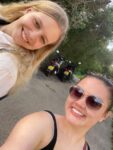
Antonia Stulz & Annika Hanson
I’m Annika, a Cuth’s student from Michigan, USA. I’m in my final year of the Health and Human Sciences BSc and will be pursuing a Masters in anthropology next year. Outside of the anthropology department, I am a dedicated member of Cuth’s boatclub.

